There are a host of ways automation has changed the face of recruitment, but is there still a role for the human touch in the hiring process?
Ultimately, recruiters and businesses want a process which is both efficiently automated and humanly personalised - one which finds the perfect balance for accessing, engaging, and retaining talent.
Commissioned with OnePoll, we surveyed 1,000 people aged 18 and over who earn £30,000, or more, and had started a new job at a new company in the last 12 months, to find out how they feel about the role of automation in the recruitment process, and where human interaction fits in.
Here is a summary of what we found:
We asked candidates how they found the job they are currently working in. The majority of people applied for their role online – with 38% applying through an online job site and 23% through LinkedIn being the highest results. However, one in five of those surveyed said they didn’t apply for their role digitally.
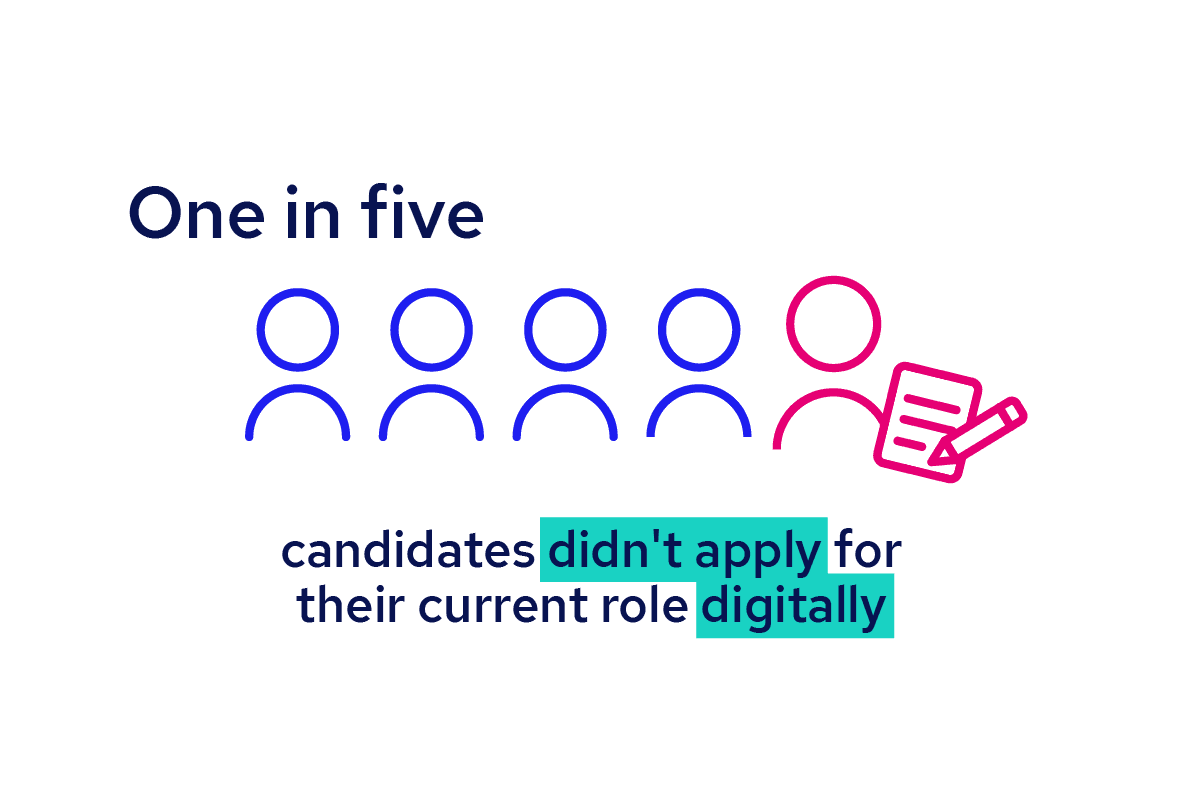
This result indicates that automation is not necessarily a panacea for everything in the recruitment process, something which is backed up by only 13% of candidates saying they had booked their interview via an online system or calendar. Indeed, 72% of candidates said they were frustrated at not being able to speak to someone about the job they were applying for, and two-thirds said they received no feedback regarding their application.
Furthermore, almost half of the survey respondents said they had withdrawn from a job application process in the past 12 months, with many saying it had been too slow or didn’t contain enough information.
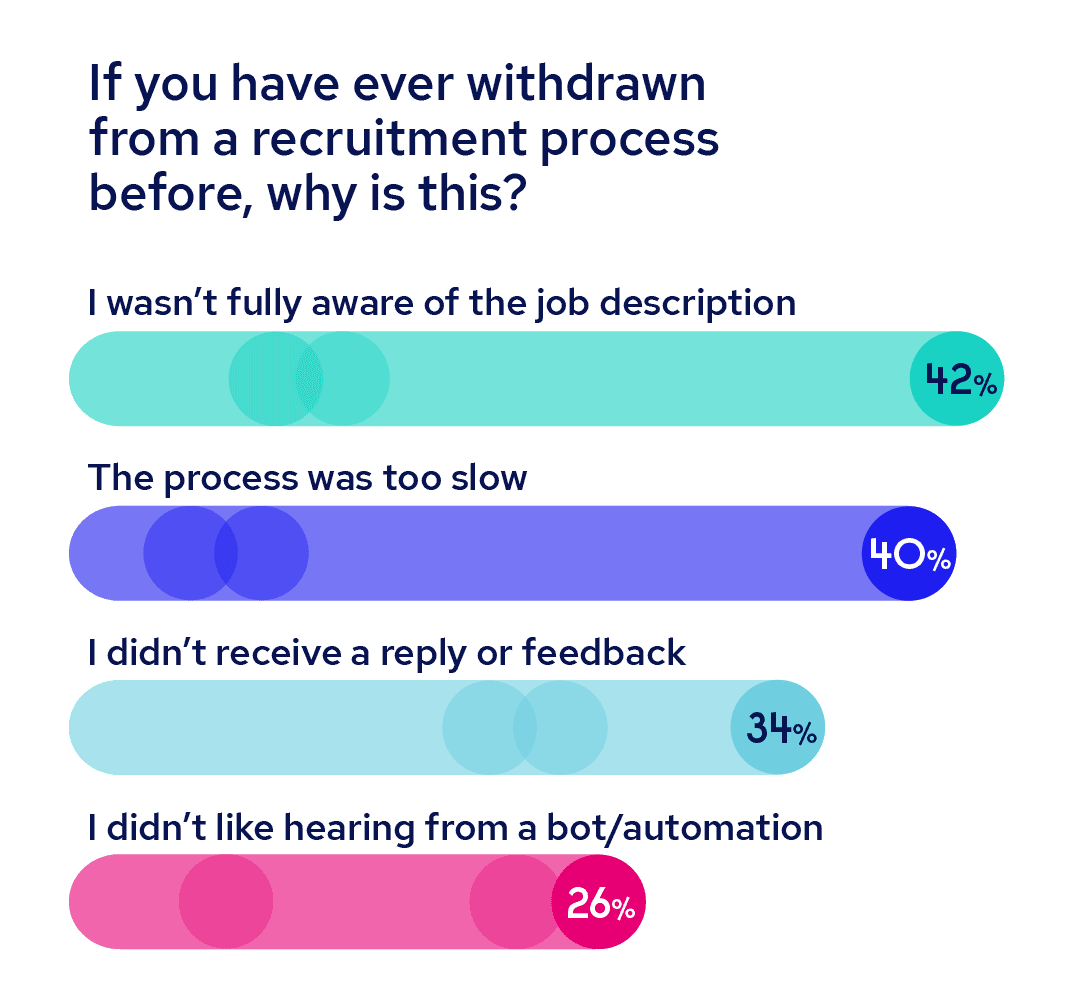
To better understand the levels of automation candidates were experiencing within the recruitment process, we asked them whether they had received a phone call prior to interview or had been sent an email with further information. The results showed an even split between the two options (both 37%), but it was notable that 21% received both – an action which could be seen as being resource heavy.
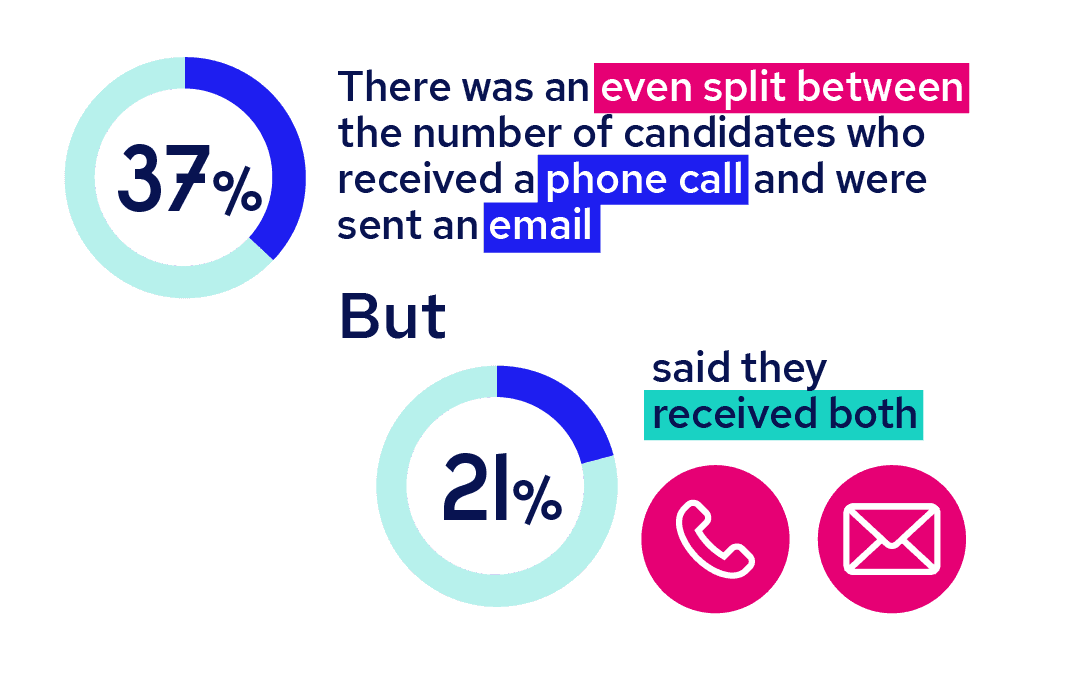
Our survey also revealed 35% of candidates had multiple interviews, compared with 40% who had a single interview. Again, this could be seen – depending on the role in question – as potentially extending the process and wasting resources. In the current labour-tight market this may lead to the loss of talent due to an elongated time to hire.
When it came to the job offer stage, 49% of candidates said they had received a phone call to inform them, with 35% getting an email or text message. Notably, 12% of people said the response they received was automated, something which implies a lack of personalised content.
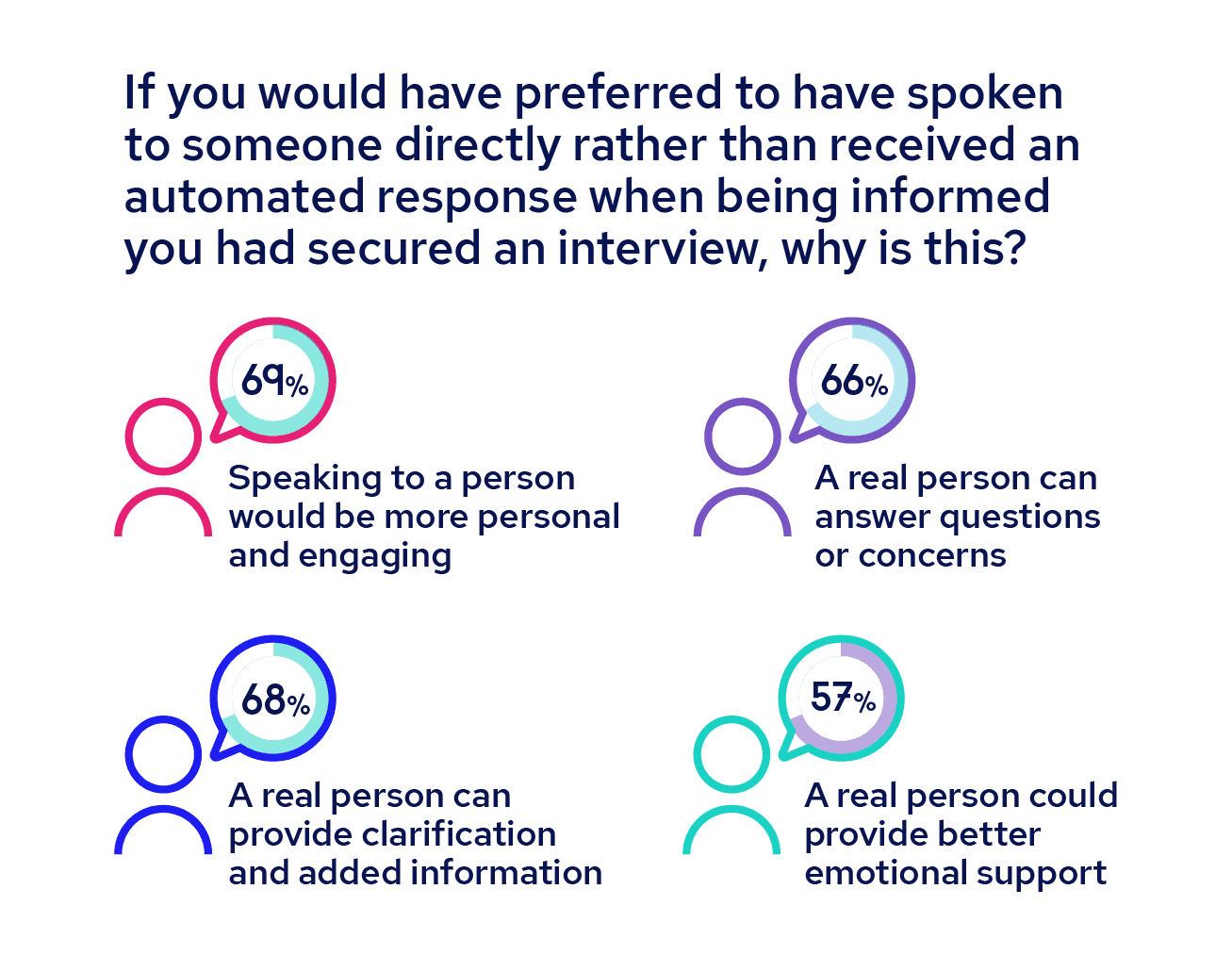

We also asked candidates about their experience of using chatbots as part of the recruitment process. Chatbots were well received by those who used them with 87% saying they had improved the process. They were also wanted by those candidates who didn’t encounter one, with 41% saying it would have been helpful to have a chatbot.
These results suggest that the use of chatbots can have a positive effect on satisfaction levels among those going through the recruitment process, boosting people’s opinion of your brand.
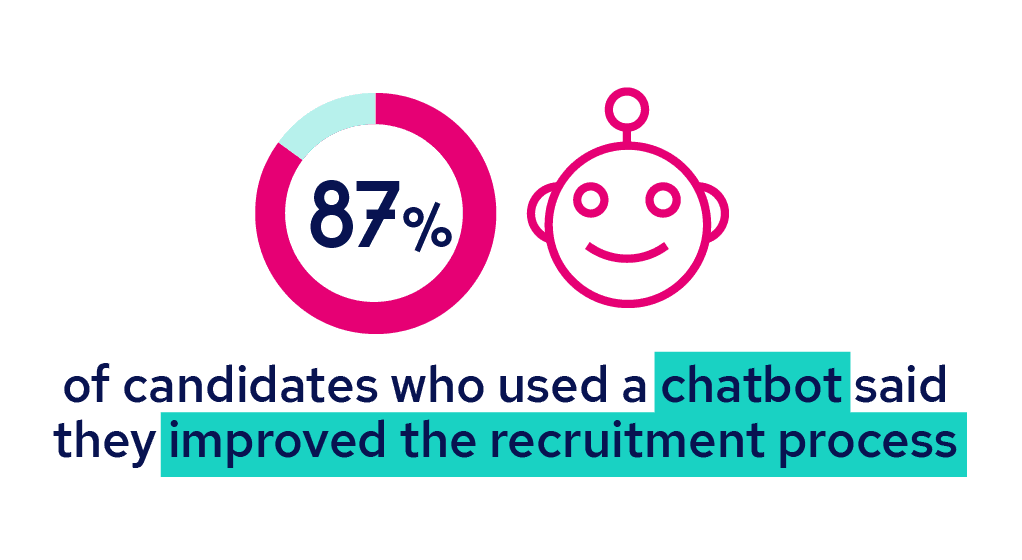
Our survey also revealed the younger generation is frustrated with certain elements of automation, with Gen Zs – those born after 1996 – more likely to prefer human interaction in the recruitment process. It found that 77% felt frustrated with not being able to speak to someone directly in comparison to 64% of Gen X (born 1965-80) and Boomers (born 1946-64).
The research also showed Gen Zs are more likely (60%) to pull out of the recruitment process, with the most common reasons being it was too slow (45%) and that they would rather deal with a real person (37%). In comparison, less than half (46%) of the Gen X and Boomer generations said they had withdrawn their application early – while only 16% of these generations said they withdrew due to automation.
When we asked candidates whether a bad experience during the recruitment process would lead to them criticising a company on social media, 51% said they were very or somewhat likely to do so. Interestingly, 47% also said such an experience would mean they would be very or somewhat likely not to apply to that same company again.
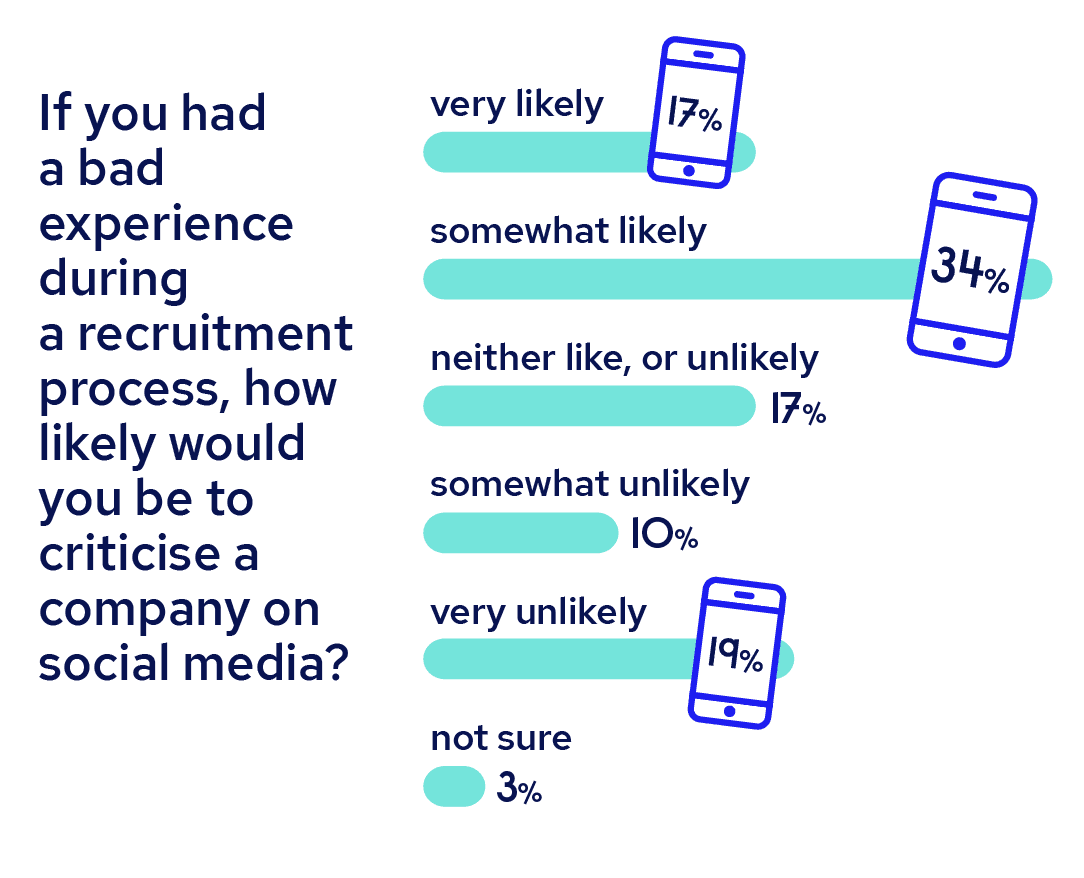
Reed Talent Solutions’ free eBook examines how to find the perfect balance between an efficiently automated and a humanly personalised recruitment process to keep candidates engaged, manage resource, and ensure inclusivity.
Our webinar, ‘Getting the right mix: Blending automation and human interaction to enhance the candidate experience,’ looks further at the results of our survey and provides commentary from Analytics Sales Manager at Microsoft, Deborah Shakespeare; Chief Executive at TALiNT Partners, Ken Brotherston; Senior Vice President of Technology at Tquila Automation, Ben Park; and Managing Director of Reed Talent Solutions’ Contingent Workforce Solutions, Julie Hinchcliffe.





